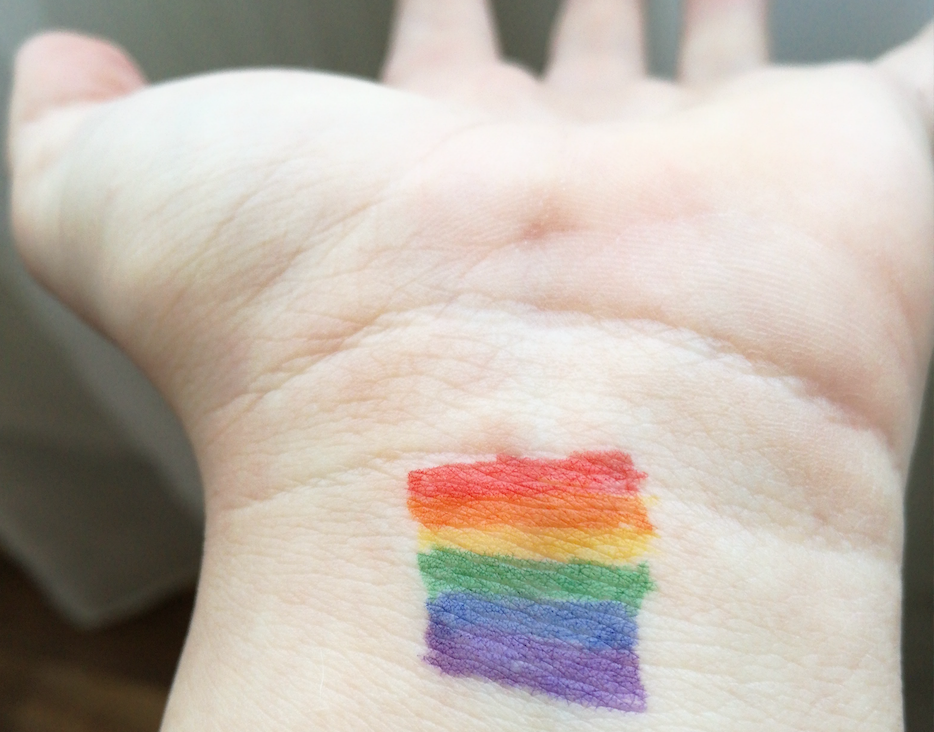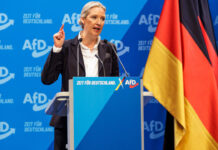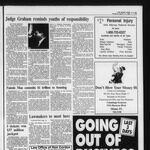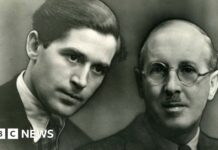
“He is a monument; he is a symbol. He has staked out a symbolic role,” political scientist, Alexei Chadaev, tells Chechen news site Club Regionov. “As a figure, he is more than the head of Chechnya. He is the leader of the ‘war party.’ This opens up a future for him, possibly at the national level.”
Noisy hawk
Last week, the regional strongman was again in the spotlight: boasting that his adolescent sons Akhmat, Eli and Adam had provided fire cover for Russian soldiers during “fierce battles,” pushing back the Ukrainian counterattack.
Kadyrov described the frontline activities of his sons in his Telegram channel, which, since the start of the war, has amassed just over three million followers and serves as his forum to weigh in on the war — and exercise his influence, both in his home region of 1.5 million, the Russian capital and beyond.
He has used the channel to advertise Chechen fighters’ prowess in crucial battles, to call for the use of tactical nuclear weapons on the battlefield in Ukraine, and recently posted a video of him graciously receiving an award for being included in the Russian Book of Records for becoming the most sanctioned individual in the country (15 different sanctions and embargoes have been imposed against him).
To take Kadyrov’s bellicose chest-thumping as pure loyalism to the Kremlin would be naïve
After the explosion on the Crimean bridge, the massive Russian counterattack against civilian targets in Ukrainian cities led Kadyrov to comment that he was now “one hundred percent satisfied” with the progress of the special military operation.
On Friday, he also thanked Vladimir Putin for his imposition of martial law in the four territories annexed by Russia (Donetsk, Luhansk, Zaporizhia and Kherson).
“Now, even if one bullet flies towards Russia, it is necessary not only to hit the decision-making centers, but to wipe them off the face of the earth,” Kadyrov said. “The fish rots from the head, so you need to start from the top.”
Rebel in disguise
But to take Kadyrov’s bellicose chest-thumping as pure loyalism to the Kremlin would be naïve. Indeed, the Chechen leader acerbically criticized the Russian army’s leadership after it appeared caught off guard by Ukraine’s counter-offensive in the Northeast at the start of September. He also rallied against the terms of release of high-profile Ukrainian prisoners of war in which Ukraine returned 215 soldiers, including 108 fighters from the Azov regiment.
Ukraine scholar and professor at Yale University, Timothy Snyder, remarked on the meaning of Moscow’s response to Kadyrov’s criticism: “Given that everyone knows that Putin is doing the actual commanding, this has to be divisive. The Kremlin responded to Kadyrov directly, and army propaganda has been showing a criticized commander with his troops in the field.”
Chechen troops are far from highly regarded by their “fellow” Russians.
“I have not seen Chechens on the front line… The Chechens themselves don’t fight a damn thing. They come out after us and shoot their videos,” one Russian soldier told Russian news sightVazhnie Istorii.
Another solider said the Chechens stood out mostly for how well-dressed they are: “They walk around, buying medals from other fighters. It was shocking when they asked me: are there any medals? I say, on the front line, there are medals there.”
Increasingly, Chechen involvement in Russia’s war with Ukraine appears motivated more by serving Kadyrov’s ambitions than any deep-rooted patriotism toward the Kremlin. He appears to want to draw attention to his own bravado and his republic’s military prowess without risking too many casualties.
Vazhnie Istorii notes that Kadyrov has been trying to push for new recruits in recent weeks, both by offering decent pay and with a religious motivation — that the fight in Ukraine is a “holy war.”
Kadyrov’s allegiance to the Kremlin may primarily be contingent upon Putin’s remaining in power.
But Snyder notes that the Chechen forces in Ukraine seem to “specialize in terrorizing civilians and instagramming. After pushing for mobilization in Russia last month, Kadyrov then announced that no one from Chechnya would be mobilized. One might conclude that he is saving his men for something else.”
That “something else,” of course, depends in large part on what happens in the war in Ukraine.
What is Chechnya’s status inside Russia?
Moscow’s relationship with Chechnya has been tumultuous since the end of the Cold War. Back in 1994, it was Boris Yeltsin, Russia’s then-president, who launched the first Chechen war, a bloody attempt to regain control of the territory, after it had separated from Moscow during the fall of the Soviet Union; it ended in 1996 with Chechnya’s de facto independence intact.
Three years later, Russia started another war, this time with Vladimir Putin at the helm. Note, though, that like Putin’s current war in Ukraine, it was not officially called a war, but rather a “counter-terrorism operation.” Putin received a helping hand from the current leader’s father, Ahkmed Kadyrov, a Sufi Muslim who had come to see siding with Russia as the only way to eradicate the Islamic fundamentalism gaining traction in the region.
Putin placed the senior Kadyrov in charge of the region in 2003, but was assassinated less than a year later. Ramzan, then just 27 years old, was promoted to leader.
The result has not been an abiding brotherhood, but a personal relationship between Putin and Kadyrov — one based on convenience, inheritance even, not on loyalty. If this is the case, it would seem that Kadyrov’s allegiance to the Kremlin is primarily contingent upon Putin’s remaining in power.
If the war continues to go badly for Russian forces in the field, a leadership battle could descend upon Moscow. And what would Kadyrov do? He might declare independence for Chechnya. He might make a play for control of the Kremlin. In either case, the army loyal to him will have to do more than pose for social media selfies.
From Your Site Articles








